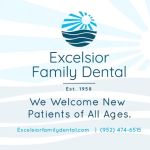Effects of Chewing Gum on Teeth
Chewing gum is a common habit for many people, often used for freshening breath or simply passing the time. But what effect does it have on our teeth? While some claim that chewing gum can be beneficial for dental health, others argue that it can have adverse effects. This article will explore both the positive and negative impacts of chewing gum on your teeth, helping you understand how to incorporate it into your routine without harming your oral health.
1. The Positive Effects of Chewing Gum on Teeth
Many studies suggest that chewing sugar-free gum can have several benefits for oral health. One of the primary reasons is that it stimulates saliva production, which plays a crucial role in protecting your teeth and gums.
1.1 Saliva Production and its Role in Oral Health
When you chew gum, your mouth produces more saliva. Saliva is essential for neutralizing acids that can erode tooth enamel, which is caused by food particles and drinks, especially those with high sugar content. Saliva also helps wash away food particles, reduces the risk of cavities, and contains calcium and phosphate, which help remineralize tooth enamel. This natural defense mechanism can help maintain healthier teeth, making sugar-free gum an excellent option for post-meal oral care.
1.2 Chewing Gum and Plaque Control
Another positive effect of chewing gum is its potential to help with plaque control. Plaque is a sticky film of bacteria that forms on your teeth, leading to tooth decay and gum disease if not removed. The increased saliva flow caused by chewing gum helps to neutralize acids and rinse away plaque, reducing the accumulation of harmful bacteria in the mouth.
1.3 Freshens Breath and Improves Oral Hygiene
Chewing gum also helps freshen your breath, which is one of the reasons many people chew it after meals. The minty flavor of gum can mask bad breath, but more importantly, it promotes better oral hygiene by stimulating saliva, which helps clear out food particles and bacteria that can cause odor.
2. The Negative Effects of Chewing Gum on Teeth
Despite the potential benefits, there are some negative effects of chewing gum, especially if it is consumed too frequently or improperly. In this section, we will explore the potential downsides of this common habit.
2.1 Gum with Sugar: The Risk of Cavities
The biggest concern when it comes to chewing gum is the sugar content. Gum that contains sugar can be detrimental to oral health, as it provides food for the bacteria in your mouth. When these bacteria feed on sugar, they produce acids that can erode tooth enamel, leading to cavities. If you frequently chew sugary gum, it can increase the risk of tooth decay and other dental issues.
2.2 Chewing Gum and Jaw Strain
Excessive gum chewing can also strain your jaw muscles. Over time, this can lead to discomfort, headaches, or even temporomandibular joint (TMJ) disorders. TMJ disorders affect the jaw's hinge joint, causing pain, difficulty chewing, and clicking sounds when opening or closing your mouth. While moderate gum chewing is unlikely to cause significant problems, overindulging in this habit could lead to unnecessary strain on the jaw muscles.
2.3 Potential Damage to Dental Work
If you have dental work such as braces, fillings, or crowns, chewing gum can cause damage. For example, sticky gum can get stuck in brackets or wires, which may lead to complications or even damage to the braces. Additionally, gum can loosen fillings or crowns if it is chewed too forcefully or often. It’s important to consider your dental health and whether gum is appropriate for your situation.
3. Choosing the Right Gum for Dental Health
If you want to enjoy the benefits of chewing gum without the risks, it's essential to choose the right type. The key is to opt for sugar-free gum, which offers all the benefits of increased saliva production without the negative impact of sugar on your teeth.
3.1 Look for the ADA Seal of Acceptance
When selecting a chewing gum, look for the American Dental Association (ADA) Seal of Acceptance. This seal ensures that the gum has been tested for safety and efficacy in promoting oral health. ADA-approved sugar-free gum can help prevent tooth decay, promote saliva flow, and reduce plaque buildup, providing you with a healthier chewing experience.
3.2 Limit Your Chewing Sessions
While chewing gum can be beneficial, it’s important to practice moderation. Limiting the amount of time you chew gum can help avoid jaw strain and reduce the risk of overconsumption of sugar, even in sugar-free varieties. Aim for chewing sessions that last around 10–15 minutes, and avoid chewing gum continuously throughout the day.
4. Alternatives to Chewing Gum for Oral Health
If you're concerned about the potential drawbacks of chewing gum but still want to improve your oral health, there are several alternatives that can provide similar benefits without the risks.
4.1 Drinking Water After Meals
One of the simplest and most effective ways to promote oral health is by drinking water after meals. This helps wash away food particles and neutralize acids, similar to the benefits of chewing gum. Carrying a water bottle with you throughout the day ensures that you stay hydrated and keep your mouth clean.
4.2 Using Mouthwash or Dental Rinses
Using mouthwash or a dental rinse is another great way to freshen your breath, kill bacteria, and reduce plaque buildup. Many mouthwashes contain fluoride, which helps strengthen tooth enamel and prevent cavities. Choosing alcohol-free mouthwash options can ensure that your mouth stays moisturized while improving overall oral hygiene.
4.3 Eating Crunchy Fruits and Vegetables
Crunchy fruits and vegetables like apples, carrots, and celery can naturally help clean your teeth. These foods promote saliva production and scrub the teeth as you chew, reducing plaque buildup and improving dental health. Including these foods in your diet can support oral hygiene while also providing essential vitamins and nutrients.
5. Final Thoughts: Chewing Gum and Oral Health
In conclusion, chewing gum can have both positive and negative effects on your teeth. When done in moderation and with the right type of gum, it can help stimulate saliva production, reduce plaque buildup, and freshen your breath. However, it's important to be mindful of the potential risks, such as jaw strain, cavities from sugary gum, and damage to dental work. By choosing sugar-free gum, limiting your chewing sessions, and considering other alternatives, you can enjoy the benefits of gum while maintaining your oral health.
If you're unsure about the best ways to care for your teeth or want professional advice on oral health, visit Dentistry Toothtruth for more information and tips on keeping your smile healthy and bright.
SEO Title: Effects of Chewing Gum on Teeth: Benefits and RisksSEO Keywords: chewing gum, oral health, benefits of chewing gum, sugar-free gum, jaw strain, dental careSEO Description: Learn about the effects of chewing gum on teeth. Discover the benefits, risks, and the best types of gum for maintaining oral health.






 19th Avenue Dental Excellence: Ramos Reynita DDS0.0 (0 review)
19th Avenue Dental Excellence: Ramos Reynita DDS0.0 (0 review) Dental Health Orthodontics - West Clinic4.0 (59 review)
Dental Health Orthodontics - West Clinic4.0 (59 review) University Dental Group4.0 (541 review)
University Dental Group4.0 (541 review) Excelsior Family Dental PLLC5.0 (304 review)
Excelsior Family Dental PLLC5.0 (304 review) Children's Dental FunZone - Pediatric Dentist & Orthodontist - Reseda4.0 (1371 review)
Children's Dental FunZone - Pediatric Dentist & Orthodontist - Reseda4.0 (1371 review) Affordable Dentures & Implants4.0 (342 review)
Affordable Dentures & Implants4.0 (342 review) The Importance of Oral Health Education During Pregnancy for a Healthy Pregnancy
The Importance of Oral Health Education During Pregnancy for a Healthy Pregnancy Best Tips for Brushing Your Teeth Properly for Healthy Gums: Essential Techniques for Oral Health
Best Tips for Brushing Your Teeth Properly for Healthy Gums: Essential Techniques for Oral Health Why Skipping Dental Checkups Can Lead to Bigger Oral Health Problems
Why Skipping Dental Checkups Can Lead to Bigger Oral Health Problems Advantages of Porcelain Dental Restorations
Advantages of Porcelain Dental Restorations How Can Diabetes Cause Tooth and Gum Problems? Preventing and Managing Oral Health Issues
How Can Diabetes Cause Tooth and Gum Problems? Preventing and Managing Oral Health Issues Healthy Habits for Promoting Good Oral Health and Hygiene: Tips for a Healthy Smile
Healthy Habits for Promoting Good Oral Health and Hygiene: Tips for a Healthy Smile